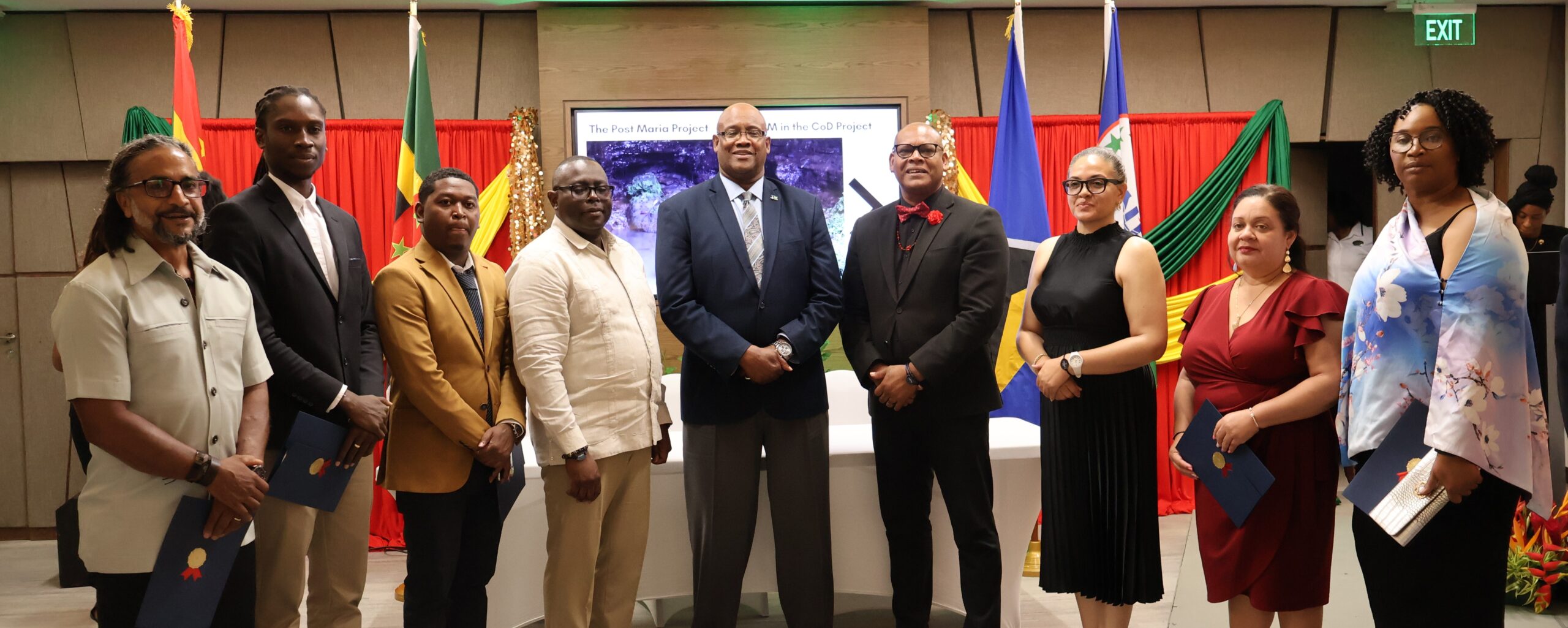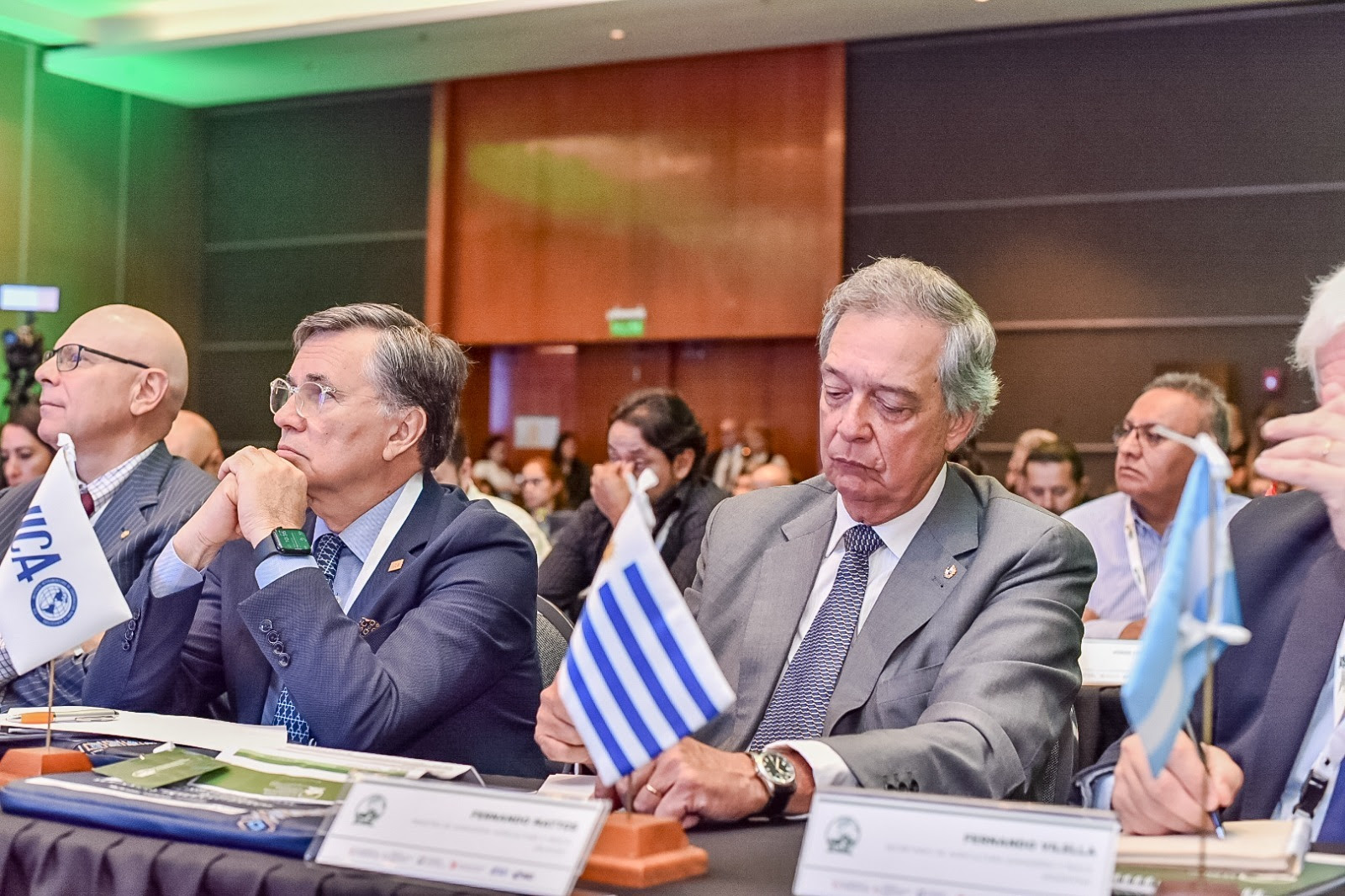As the FAO Regional Conference enters its third and final day today, delegates are seeking to establish a roadmap towards sustainable and climate-resilient agriculture, prosperous rural societies and a food system that guarantees healthy food for all.
Regional countries have also been using the deliberations to outline the impacts the coronavirus has had on agriculture and specifically, their economies, and are calling on the FAO to lend more assistance.
“We must move towards agri-food systems that provide healthy and nutritious food for all, towards a prosperous and inclusive rural world, without poverty and with opportunities, and ensure environmental sustainability and climate mitigation, adaptation and resilience,” said FAO’s Regional Representative, Julio Berdegué.
Haiti’s Prime Minister, Joseph Jouthe, said that additional resources are urgently required at the regional level, “which can be mobilised through the FAO Technical Cooperation Programme, in order to meet the growing needs of the States” hard-hit by the pandemic.
The conference not only establishes the priorities of the FAO in the region, but also allows Latin America and the Caribbean to share its viewpoints for FAO’s new global strategic framework, currently in preparation.
Barbados’ Agriculture and Food Security Minister, Indar Weir, noted that: “We must recognise the importance of Small Island Developing States (SIDS) in all our conversations”.
The FAO said that aware of this, in January 2020, it created a new office for SIDS, Least Developed Countries (LDCs) and Landlocked Developing Countries (LDP).
The Minister of Agriculture and Marine Resources of the Bahamas, Michael Pintard, noted that, “COVID-19 has affected our tourism and financial services. Unemployment has grown and we have established an emergency food programme.”
According to the FAO, by 2050, world demand for food will increase by 50 per cent, but the region must transform the food system to meet the demand for safe, diverse and healthy products: that is the priority that FAO presented to its member States.
“Our region is the world’s largest net food exporter. But it is not just about producing more; we must improve trade and expand access to better markets, especially for family farming, artisanal fishing and food SMEs,” said Berdegué.
According to FAO, there is no hunger and malnutrition in the region due to lack of food, but rather due to poverty and inequalities: “In this region it is too cheap to eat badly, and it is the most expensive place to eat healthily,” said Berdegué.
Achieving prosperous and inclusive rural societies is the second major axis of the programme that FAO presented to the Conference.
“A rural world with opportunities, for all. Because the countryside is not just for food production. It is also a source of tourism, fresh water, landscapes, biodiversity, clean energy and tourism”, said Berdegué.
To eradicate rural poverty, FAO proposes a multidimensional strategy — the Hand in Hand Initiative — focused on the countries and territories that are lagging behind and with special attention to rural women, family farmers, and indigenous peoples and Afro-descendants.
“The Hand in Hand programme is a proactive response to find a way out of the structural crisis caused by the COVID-19 pandemic, a crisis that has generated profound discussion on the state of agriculture throughout the world,” said the El Salvador’s Vice-president, Félix Ulloa.
Berdegué, presenting the third priority area for FAO, said reducing the environmental and climate footprint of regional agriculture can be a driver of innovation, new investments, new and better jobs, and more space for family farming and rural SMEs.
Jamaica’s Minister of Agriculture and Fisheries, Floyd Green, who is also the vice-president of the FAO conference, noted that, “We ask FAO to support us to incorporate climate-smart technologies in the region and also agricultural insurance so that producers can tackle climate change.”
Minister of Agriculture of Uruguay, Carlos Maria Uriarte, said the region must turn “towards an economically profitable, socially responsible and environmentally regenerative agriculture”.
Berdegué said innovation must be at the heart of food and agriculture, adding “we propose to promote digital innovation as a transversal axis of FAO’s action, support national innovation systems, and facilitate the active participation of the countries of the region in the International Platform for Digital Food and Agriculture”.
In this regard, Peter Phillips, Minister of Agriculture and Food Security in Barbados, said that “FAO’s support will be essential to facilitate the transfer of technologies and knowledge that promote competitive and sustainable value chains.”




